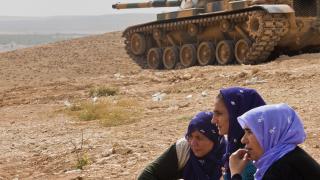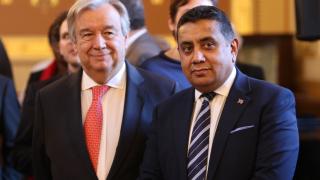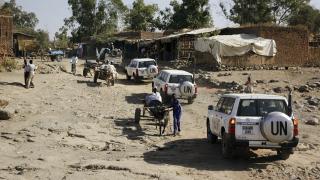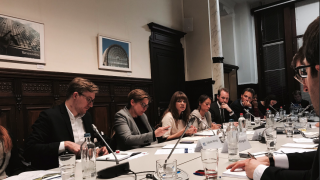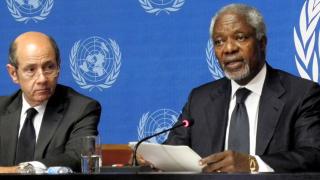
In an effort to push the gridlocked UN Security Council into action, the UN General Assembly adopted a resolution on 3 August condemning the worsening situation in Syria and deploring the Council's failure to end the violence.
Although non-binding, the move carries significant symbolic weight, especially as the vote was won by a commanding margin of 133 in favour, with 12 against and 31 abstaining.
Ahead of the vote, Secretary-General Ban Ki-moon called the Syrian conflict a “test of everything this organisation stands for”. He compared the situation to past failures in Rwanda and Srebrenica and urged states not to fail again.
The resolution is notable for its criticism of the Security Council, and for putting the onus to act first squarely on the Syrian authorities. Sir Mark Lyall Grant, UK ambassador to the UN, said it was not meant to be “balanced” as the “situation on the ground is not balanced”.
However, two key provisions were weakened in the final resolution: on President Assad stepping down and on enacting sanctions – both of which UNA-UK considers essential.
Nonetheless, the resolution signals that overwhelming support for action exists outside the Security Council, all the more important since Kofi Annan resigned as joint UN-Arab League envoy to Syria on 2 August.
Announcing his decision, Annan cited both the increasing violence and lack of unity in the Security Council as having “fundamentally changed the circumstances” of his role. In a stark rebuke to world leaders, he said: “as an envoy, I can’t want peace more than the protagonists, more than the Security Council or the international community for that matter.”
He called on Russia, China and Iran to use their influence to press the Syrian regime to change course and embrace political transition; and on the US, UK, France, Turkey, Saudi Arabia and Qatar to press the opposition to accept a fully inclusive political process.
Ban Ki-moon, who is working with the Secretary-General of the Arab League to appoint a new envoy, praised his predecessor: “Kofi Annan deserves our profound admiration for the selfless way in which he has put his formidable skills and prestige to this most difficult and potentially thankless of assignments … I will continue to draw on his wisdom and counsel.”
UNA-UK hopes that a new envoy will be appointed imminently and that she or he will have the necessary support from the international community, in particular all permanent members of the Security Council.
Today's developments - "carnage" in Aleppo, the reported defection of Syria's Prime Minister and the opposition's announcement that they would be prepared to negotiate with government officials if Assad goes - make swift resumption of political discussions all the more urgent.



